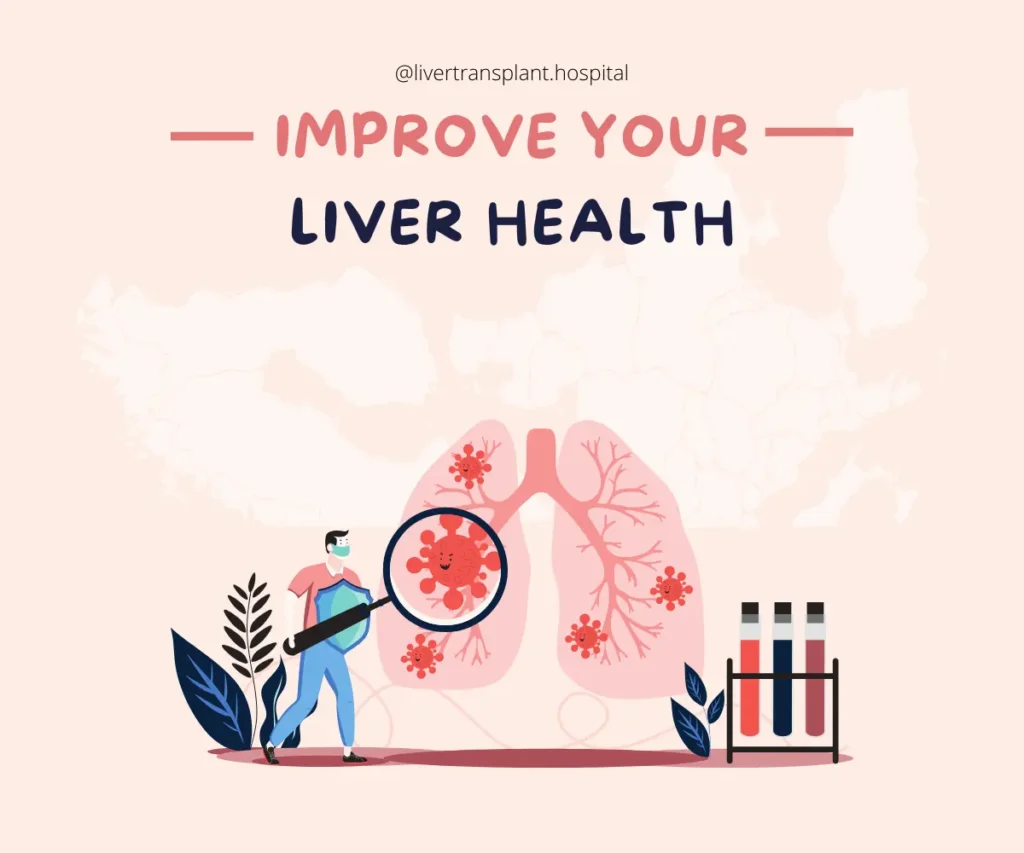Living with a donor’s liver is a profound journey that transforms not only the body but also the mind and spirit. After undergoing a liver transplant, recipients are given a second chance at life, but the road to recovery comes with both physical and emotional challenges.
A Second Chance
Receiving a liver transplant from a living donor is not only a medical procedure; it’s an emotional journey that brings a whirlwind of feelings. For many, the realization that someone, possibly a loved one or even a stranger, is willing to give a part of their body to save their life can be overwhelming. Gratitude, relief, and even guilt are common emotions that surface during this time.
- Gratitude: Many recipients feel a deep sense of thankfulness towards their liver donor.
- Relief: After a long wait or struggle with liver disease, the transplant represents a new beginning.
- Guilt: Some patients experience guilt, knowing their recovery involves the donor’s surgery and potential risks.
It’s also common to feel anxiety about the transplant process, including concerns about recovery and the potential for organ rejection. Having a mental health counselor available during this period can be extremely helpful, as they provide tools to process these emotions in a healthy way.
Living with a donor liver is a constant reminder of the gift of life. Embracing this second chance often leads recipients to form an unbreakable bond with their liver donor, which can be a powerful source of emotional strength.
Beyond the Surgery
Life after a liver transplant involves more than just recovering from surgery. It’s about adjusting to a new way of living and creating a routine that prioritizes health and well-being. The transplant process doesn’t end when the surgery is over; it continues as you adapt to your new normal, with the donor liver becoming a part of your daily life.
To ensure the success of the transplant and maintain a healthy liver, recipients must make specific lifestyle adjustments, including:
- Medication management: Taking immunosuppressants daily to prevent the body from rejecting the new liver.
- Regular medical check-ups: Routine visits to monitor liver function and overall health.
- Dietary changes: Following a healthy diet that supports liver function, which includes staying hydrated and reducing salt and fat intake.
- Physical activity: Incorporating light exercises, such as walking, to improve recovery and overall health.
Embracing these changes can be challenging, but they are essential to thriving with a donor liver. Support from family, friends, and medical professionals can make the transition smoother, helping you regain your strength and enjoy life after the transplant process. Each day is a step toward fully adapting to your new normal, with the gift of life from a liver donor.
The Bond of Life
Receiving a liver from a living donor creates a unique and lifelong bond between the recipient and the donor. This connection goes beyond the physical act of donation; it’s deeply emotional and often transformative for both individuals. The liver transplant journey for a living donor and recipient is a shared experience, filled with mutual respect, gratitude, and care.
For many recipients, knowing that their liver donor made a personal sacrifice to save their life can bring about a strong sense of responsibility and emotional depth in the relationship. This can strengthen existing bonds between family members or even forge new, meaningful connections between strangers who become tied through the gift of life.
Key elements of the patient-donor relationship include:
- Open communication: Regular, honest conversations about feelings and health concerns.
- Mutual respect: Understanding and appreciating the physical and emotional journey of both the donor and recipient.
- Privacy considerations: Allowing each person the space to heal and process in their own way.
The bond between a patient and their liver donor often extends far beyond the immediate post-transplant period, fostering a lifelong connection that reminds both parties of the significance of the gift that was given. It is a relationship marked by gratitude and shared hope for a healthy future.
Post Transplant
After a liver transplant, adjusting to life can bring practical challenges that require careful management. While the surgery offers a new lease on life, the post-transplant period involves navigating new routines, medications, and lifestyle changes. Knowing how to handle these challenges is essential for long-term health and well-being.
One of the biggest challenges is managing the post-surgery medication regimen. Liver transplant recipients must take immunosuppressants to prevent organ rejection, but these medications can cause side effects such as weight gain, mood swings, or increased infection risk.
Here are key areas where liver transplant recipients face challenges:
- Medication management: Immunosuppressants must be taken daily at specific times.
- Dietary restrictions: Certain foods must be avoided to protect the liver.
- Physical limitations: Heavy lifting or strenuous activities may be restricted for a period.
- Regular check-ups: Frequent medical visits are required to monitor liver function.
In addition to physical adjustments, there may be emotional challenges, such as anxiety about organ rejection or the long-term success of the transplant. Working closely with a mental health counselor can help patients cope with these concerns. Establishing a solid support system and having a clear understanding of the transplant process can make the transition smoother and more manageable.
Nutrition and Wellness
After a liver transplant, maintaining proper nutrition and overall wellness is essential for long-term success. A healthy lifestyle helps support liver function, reduces the risk of complications, and promotes general well-being. Since the body is adjusting to the new liver, patients need to follow a well-balanced diet that strengthens their immune system and aids in recovery.
Key guidelines for nutrition after a liver transplant include:
- Eat a variety of fruits and vegetables: These provide essential vitamins, minerals, and antioxidants to support liver health.
- Choose lean proteins: Opt for fish, chicken, or plant-based proteins, which are easier for the liver to process.
- Stay hydrated: Drinking plenty of water helps your liver function and aids in digestion.
- Limit salt and fat intake: Too much salt can increase blood pressure, and excessive fat can burden the liver.
In addition to nutrition, regular exercise and stress management are crucial components of post-transplant wellness. Gentle activities like walking, yoga, or swimming can help improve physical fitness while reducing the risk of liver complications. Consulting with a nutritionist and mental health counselor can ensure you’re meeting your body’s needs and maintaining both physical and emotional health after your liver transplant.
Advocacy and Support
After a liver transplant, finding a supportive community can make a significant difference in the recovery process. Being part of the transplant community provides emotional support, practical advice, and a sense of belonging to individuals who share similar experiences. Whether you’ve just had a transplant or are further along in your recovery, advocacy and connection can enhance your journey.
Engaging with others who have gone through the liver transplant process can offer:
- Emotional support: Knowing you’re not alone in your recovery can alleviate feelings of isolation.
- Practical advice: Others who have been through the transplant process can share insights on medications, lifestyle changes, and post-surgery care.
- Advocacy opportunities: Joining awareness campaigns or support groups allows you to give back by raising awareness about the importance of organ donation.
Additionally, connecting with a liver donor support group or online forum can provide valuable information, shared experiences, and a space for open discussions. Advocacy also plays a crucial role in promoting the importance of organ donation, helping others in need of a liver transplant to find a donor and receive life-saving care.
By becoming an active member of the transplant community, you not only benefit from support but also contribute to spreading awareness and hope.






